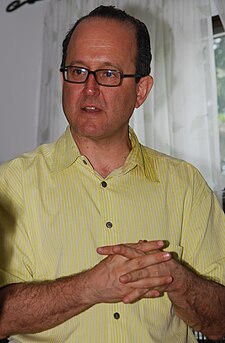A group of bloggers is suing Huffington Post, founder Arianna Huffington, and AOL for $105 million, saying they deserve to be paid more – or ever paid at all – for the content they’ve contributed to the site. The bloggers are miffed by the fact that Arianna Huffington sold the site for $315 million to AOL and didn’t offer to share any of the windfall with the 9,000 or so bloggers who have contributed free content for the last four years. On the other hand, Huffington never promised to pay those bloggers anything, so no contract has been violated.
 The plaintiffs actually aren’t challenging HuffPo on contract terms. In a press conference, they said they’re suing under common law based on a claim of “unjust enrichment.” In other words, what Huffington did is just wrong, despite the fact that there was no legal prohibition against her doing it.
The plaintiffs actually aren’t challenging HuffPo on contract terms. In a press conference, they said they’re suing under common law based on a claim of “unjust enrichment.” In other words, what Huffington did is just wrong, despite the fact that there was no legal prohibition against her doing it.
Spokesman Jonathan Tasini (above left), who is described as both a union organizer and journalist, had some eyebrow-singeing words for Ms. Huffington. “We are going to make Arianna Huffington a pariah in the progressive community,” he said. “No one will blog for her. She’ll never [be invited to] speak. We will picket her home. We’re going to make it clear that, until you do justice here, your life is going to be a living hell.” Restraining order, anyone?
Journalists Deserting Bay Area
The San Francisco Peninsula Press Club surveyed its membership and found that there wasn’t much membership left to survey. A non-scientific census found that 45% of the 700 journalists “accepted a buyout or voluntarily left their job during a period of downsizing during the past 10 years,” according to a news item posted in the San Francisco Business Times. The wording is vague about whether that means those laid-off journos are still out of work – and only 3% of respondents said they’re currently unemployed – but the research is being interpreted as a sign that nearly half the journalists in the San Francisco area have fled during the last decade.
The findings are unsurprising in light of the massive hits Bay Area newspapers have taken in the face of electronic competition. The San Jose Mercury News has cut well over half its staff in recent years, and the San Francisco Chronicle was only weeks away from being shuttered by Hearst before heavy cost cuts spared its life two years ago. Neither is at all well.
Miscellany
Fortunately, those laid-off journalists won’t have to pay as much for their Amazon Kindles as they used to. Amazon just introduced an ad-supported version of its e-reader that’s priced $25 lower than the version without the commercials. That means the Kindle, which was introduced in 2007 at a price of $399, is now only $114, and we can’t imagine why Amazon doesn’t just drop the price to $99 and make the device an impulse purchase. It continues to make strange decisions in the face of heavy new competition from tablets.
Speaking of which, a survey of 1,431 tablet owners by Google’s Admob mobile ad network found that tablet-toters spend more time with their devices than with magazines, newspapers, radio, laptops or TV (although not combined). We’re not sure if the total includes time spent cuddling the tablets while sleeping, but it was an excuse for Search Engine Watch to put together this nifty infographic (click to super-size).
Comments
This entry was posted on Thursday, April 14th, 2011 at 5:21 am and is filed under Fake News. You can follow any responses to this entry through the RSS 2.0 feed. Both comments and pings are currently closed.




I am wondering if I might be able to find something more useless than a J-School degree while being all the more essential for being informed individuals and informing others of what we feel they need to know.
As we all venture into an increasingly interconnected information landscape it behoves us to communicate and evaluate information with a critical mind.
No, we will not apply the rules of allegedly unbiased journalism where all supposed sides of any argument are exposed, frankly that often leads to acts of intellectual masturbation and debates where there are no debates, but we will instead expose our information, with proper attribution, in proper English, and the Hell with the supposed debate.
The practices of J-School, the research into a subject, the writing and reporting of what discoveries we make are going to be more necessary in the coming years.
The practices of critical thinking, of questioning basic assumptions, of asking “why” to the most basic justification, is going to make the difference between being at the mercy of whatever results from human stupidity and being able to avoid it.
The problem at the Fukushima power plant is just one example.
They assumed that they could build the reactor cores where they did. They assumed wrongly and now there are lives lost, hundreds of square miles of Japan’s scarce arable land lost and billions of dollars at stake, all because they were wrong.
A quick risk analysis would have told them that building where they did, on arable land next to a source of countless disastrous tsunamis throughout the history of Japan, and in the way that they did, leaving everything exposed, vulnerable and at the mercy of the elements, instead of burying everything deep underground where they would have been immune to what is happening and where everything, including nuclear waste, would have been contained safely and securely, was wrong.
I suspect that any future nuclear plants will be built deep underground, if only because I will agitate for it at every chance I get.